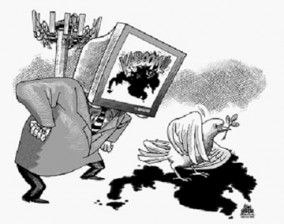
Or maybe not based on the outcry of Mindanao-based journalists who condemned what they described as the biased coverage of Imperial Manila’s media outlets.
An ABS-CBN “TV Patrol” survey asked respondents whether the national government should pursue an all-out war against the MILF due to the death of the 19 soldiers.
About 95 percent said the government should drop the kid gloves and pursue a mailed fist policy against MILF rebels. Not a few congressmen in Manila joined in the clamor. Even former president Joseph Estrada criticized the Aquino administration’s timid stance against this latest atrocity to the country’s troops.
But the President wasn’t alone in his decision to slam on the brakes and call for sobriety amid the corpses of fallen soldiers.
Catholic Church leaders and even Mindanao-based media were indignant over the stance of war hawks, including those of colleagues in Luzon who were, unconsciously or willingly, encouraging sentiment in support of all-out war.
Who knew a simple survey poll could draw Muslims in Marawi City to burn the ABS-CBN logo and photos of former-vice-president-turned-TV-anchor Noli de Castro, Korina Sanchez and Ted Failon during a rally?
To be fair though, the radio dyAB commentary by Cebu station manager Leo Lastimosa—who cited his own life experience in Mindanao conflicts—on the recent Mindanao massacre of troops also opposed the all-out war declaration against the MILF.
Somehow the lessons of sobriety in the Manila bus hostage-taking tragedy didn’t translate into other aspects of media coverage of troubling issues that, while not having the life-and-death immediacy of a hostage crisis, still influence how such issues would be handled by policymakers.
The media can focus on other areas in the latest debacle such as initial findings that the soldiers who died were sent unprepared to the war zone by their immediate superiors. In fact, the whole operation where they perished wasn’t known by higher-ups in the chain of command.
A Facebook post by Mindanaoan journalist (and former Cebu Daily News reporter) Froilan Gallardo last Oct. 24 sums up a familiar sentiment of colleagues in the Mindanao media: “Can’t we take a stand against our colleagues from Manila whose news agenda clearly promotes an environment of war. … After all Mindanao is our home and surely it will be our families and friends who will be affected. Not theirs. They can go back to the comforts of their lives in Manila after covering the war here while we face the sad reality.”
A more sober, unbiased coverage is needed for the conflict in the troubled region of Mindanao.